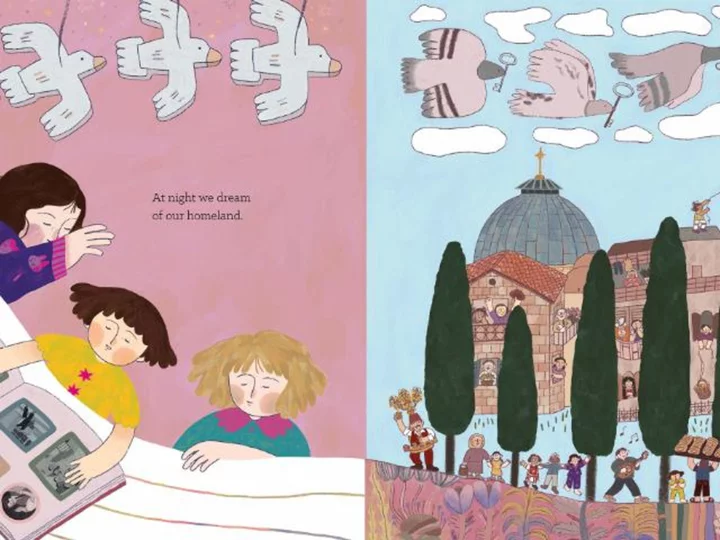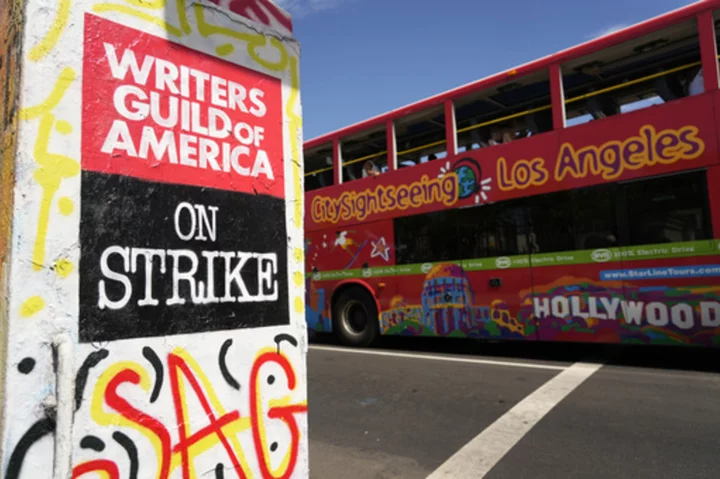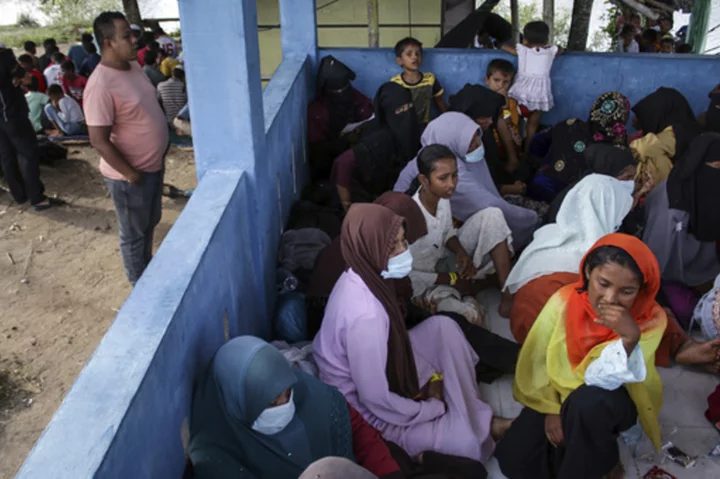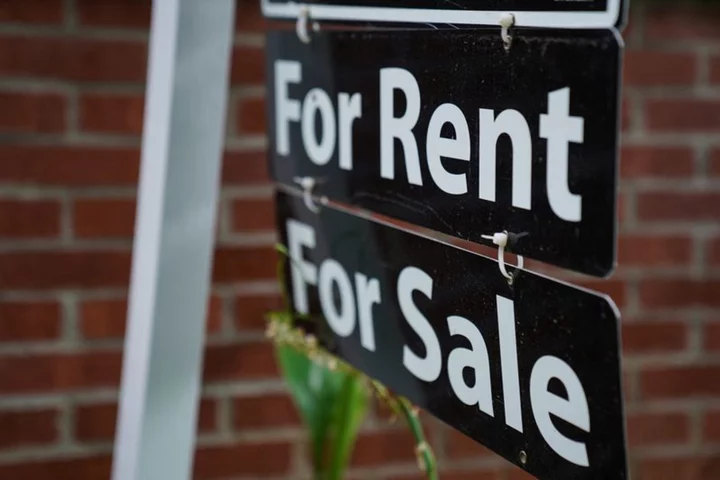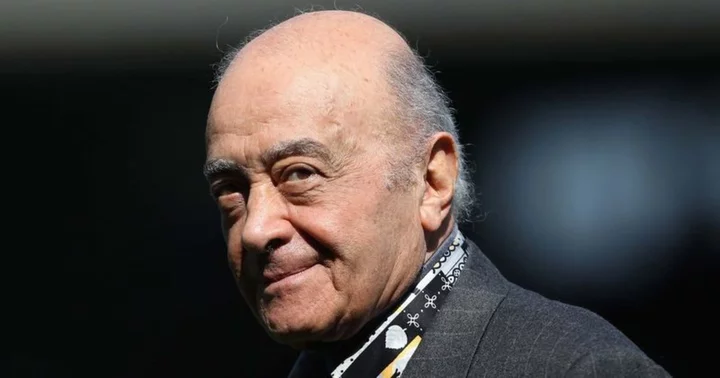Hannah Moushabeck remembers the warm feeling of snuggling beside her two sisters under a heavy blanket, giggles filling their bedroom as they waited for baba to tuck them in and share another bedtime story.
"Today I'm going to tell you a story about Palestine," he would say, as their eyes widened with anticipation. Their father's stories were always about his homeland, and the funny and mischievous adventures he had there.
"Kan ya makan, fi kadeem al-zamaan," he would whisper, Arabic for "once upon a time," before diving into a magical tale of ancient cities, souqs and olive groves -- or the war he said ultimately stole it all away.
For Moushabeck, it was a welcome departure from the storybooks her teachers in western Massachusetts made her read. As a first-generation Palestinian-American, she couldn't relate to the protagonists, usually White girls with White-girl problems.
Today, Moushabeck, 36, is part of a burgeoning movement of Palestinian-American authors publishing children's books in English with Palestinians as the main characters. The goal, they say, is to give Palestinian youth characters they can identify with. They also want to teach the next generation in diaspora about their unique culture and history, and help children of all backgrounds understand what it means to be Palestinian.
"Growing up, my father always told my sisters and I that 'books are the gateway to a country's soul' and that as Palestinians, it is important that we educate people about the history, art, literature and beauty that our culture brings to the world," she said.
Moushabeck's book, "Homeland: My Father Dreams of Palestine," takes readers on a voyage through historic Palestine, before the founding of Israel, successive Arab-Israeli wars and Israeli military occupation of the West Bank and Gaza changed the country's name and landscape, and drove hundreds of thousands of Palestinians, including her father, into exile.
"This book is a gift to my ancestors," Moushabeck said. "A reminder to preserve and celebrate our culture in the diaspora. And an ode to the power of storytelling.
Letting Palestinian children be children
Despite recent strides in the arts, Palestinian-Americans, along with other Arab-Americans, are still woefully underrepresented in books.
Between 2018 to 2022, the Cooperative Children's Book Center at the University of Wisconsin-Madison's School of Education found that less than 1% of children's and young adult books released by US publishers were about Arabs. The only group with less representation was Pacific Islanders.
That's a serious issue, says Susan Muaddi Darraj, author of "Farah Rocks," a chapter-book series about a feisty Palestinian-American fifth grader named Farah Hajjar who contends with bullies and school drama.
Muaddi Darraj, 48, says she wrote the book series for her daughter, Mariam, after she asked why there were no Palestinian characters in the fifth-grade books she read.
"I wanted to create a Palestinian childhood experience that I did not have. I wanted her to have a joyful experience, being Palestinian-American and not having any negative feelings about that," said Muaddi Darraj, who lives in Baltimore, Maryland. "I wanted her to live in a diverse community where nobody thinks it's weird that she speaks Arabic and brings Arabic food to school."
Farah's culture comes up in various ways throughout the series, from the food she eats to her relationship with her grandmother, who doesn't speak much English.
Muaddi Darraj sprinkles Arabic words in the text for children who speak the language to recognize, as well as a glossary for those who don't. The books also feature activities related to Palestinian culture, including a recipe for hummus and a tutorial for tatreez, traditional Palestinian embroidery.
For Muaddi Darraj, it's important to normalize the Palestinian-American experience. She was born and raised in the United States, but her family hails from Taybeh, a small village in the Israeli-occupied West Bank. As a child, she didn't have any books that mirrored her experience of being caught between two cultures, and so she sometimes felt like an outsider.
She also struggled with moments of bias and discrimination, including the time a teacher told her there is no such thing as Palestinians and that it's a made-up identity.
"It's important to write stories for children about finding your strength and your identity and combating racism," Muaddi Darraj said. "But it's also important to show children healthy depictions of themselves living healthy, normal lives, where the problem that they encounter in the book is not racism, it's studying for a big test or dealing with a friendship issue."
Children rely on books to help them make sense of the world and their place in it, she says. "If you can hold up a book to people and say, 'this is who I am,' that's a good feeling."
Resisting the denial and erasure of Palestinian existence
For Ibtisam Barakat, placing Palestinian characters at the center of her books is a form of existing. In Beit Hanina, the East Jerusalem neighborhood where she was born, public displays of Palestinian identity -- even just saying the word Palestine -- can land a person in trouble.
After Israel captured East Jerusalem in the 1967 Six Day War, Palestinian flags were prohibited from flying, newspapers were censored and books confiscated. "I never saw myself in books or in a flag or anywhere. I didn't really feel that I existed at all," said Barakat, 59.
After immigrating to the United States at 22, she worked as a journalist but became disillusioned with the profession by how heavily policed her words were when writing or speaking about Palestinians. She ultimately turned to books, publishing three in English and four in Arabic.
"I was forced to understand the importance of art and language, that they're real and their value is like food, that they are windows and doors to humanity," she said. "Language can turn what's ugly and unbearable into beauty."
Among her books is the memoir "Tasting The Sky: A Palestinian Childhood." Written from the perspective of herself as a child, she details the traumatic experience of war, including the day bombs struck her home and forced her family to flee.
"My whole life has been a journey of attempting to heal the traumas of my Palestinian identity," Barakat said. "The emotional territory of being Palestinian is great trauma, great loss."
The book, which won numerous awards, has been included in school curriculums across the US, exposing children of all backgrounds to the Palestinian experience.
"My books are not written for the Palestinian child only," said Barakat, who now lives in Columbia, Missouri. "I write about the Palestinian childhood experience. All children need to learn about one another's experiences. The more they know about themselves and others, the richer their lives will be, and the kinder they will be toward others."
Literacy experts tend to agree that the positive effects of children seeing themselves represented in books are undeniable, improving their grades, confidence and mental health.
Ruba Marshood, CEO of Indy Reads, a nonprofit group that works to increase literacy, says diverse bookshelves also result in more inclusive communities for children of color.
"It's important for all of us to read about people who have different lives and cultures than our own," said Marshood, 41. "When we read about others, we deepen our empathy and our ability to recognize that as different as we may be...we have a whole lot in common."
It's crucial for children to build an awareness and appreciation for other cultures while they're still developing their sense of self, she adds. It could help create a society that's free of negative and often harmful stereotypes
Marshood, who is also Palestinian-American, says that without proper representation of Palestinians in children's books, many will grow up being misunderstood
"The mainstream narrative of Palestinians is one that is often defined in relation to Israel, Zionism, occupation, and the violence of oppression. In this narrow context, the entire fabric of a culture is made invisible," she said. "It would have been a lot less painful were my classmates able to see me as a Palestinian and not a terrorist."
Helping Palestinian kids make sense of their community's pain
For many Palestinians, it's impossible to teach the next generation about their culture and history without explaining the community's collective trauma. War and military occupation are the reasons why so many now live in diaspora.
To help them understand, Amahl Bishara, 37, traveled from her home in Medford, Massachusetts, to Aida Refugee Camp, a UN-administered camp between Bethlehem, Beit Jala and Jerusalem, where she enlisted dozens of Palestinian children to write and illustrate an alphabet book.
Every Arabic letter in "The Aida Camp Alphabet" stands for a different aspect of life in the camp -- where children exist in the shadow of military watchtowers, snipers eying their every move. Here, kids learn words like "occupation" and "refugee" not long after "mama" and "baba." Their bedtime stories are often marred by the violence and insecurity of daily life.
"Jiim is for jidaar, the wall that looms over our homes, and jaysh, the army that comes in jeyaab, jeeps, to terrorize and arrest," one page reads. It's accompanied by a child's collage of Israeli soldiers carrying guns by the large concrete wall that snakes through the West Bank, separating Israelis from Palestinians, as well as Palestinians from each other.
"Noon is for Nakba, the big catastrophe of 1948 that displaced our grandparents and brought us to Aida, and the smaller catastrophes of violence and dispossession that we live every day," another page reads.
More than 5,000 people live in the camp, which covers less than half a square mile. Most of them are the children and grandchildren of Palestinians who fled or were expelled from their homes by armed Jewish groups during the 1948 Arab-Israeli War. Palestinians refer to the event, which saw roughly 700,000 people dispossessed and barred from returning to their homes, as al-Nakba, or "the catastrophe."
This month, Palestinians all over the world mourned the 75th anniversary of al-Nakba.
Of course not all the letters in the book are grim. Many also celebrate beautiful aspects of Palestinian culture and cuisine: taa is for tabla, the drum played on joyous occasions; faa is for falafel, every Palestinian's favorite sandwich.
Bishara, whose own family was expelled from the Galilee in 1948, says it's important to teach Palestinian children raised in diaspora about every aspect of Palestinian culture and history, including those that cause great pain. In many ways, she says, it's vital to keeping the Palestinian issue alive.
"These children's books empower Palestinian kids in America with the knowledge of their history and heritage, but getting young people engaged and informed is also the foundation for them being active participants in the struggle for justice for Palestinians," Bishara said.
Reclaiming their homeland through literature
In many respects, these authors are carrying on an age-old Palestinian tradition of storytelling, only in a new land -- far from what was historic Palestine's towering mountains, expansive deserts, ancient stone walls, and trees lush with oranges, pomegranates, mulberries and olives.
Most attribute their work to the influence of Naomi Shihab Nye, the Palestinian-American poet and novelist behind the 1994 children's book "Sitti's Secrets," one of the first with a Palestinian character to be published in the US.
In the story, a girl named Mona travels to her parents' homeland, where she meets her grandmother for the first time. Because neither speaks the other's language, they make one up and use it to discover each other's secrets and forge a lasting bond.
A few years later, Nye published "Habibi," a young adult novel about a Palestinian-American girl who moves with her family from St. Louis to the West Bank, where she falls in love with a Jewish boy.
"I feel so honored, so touched that all these wonderful writers and humans mention me," said Nye, 71. "I'm very, very, very happy that there are so many more books representing beautiful Palestinian life after we have suffered so much dehumanization. I love knowing that I have all these younger sisters, brothers, children, grandchildren out there, who are going to keep telling our country's stories."
For Barakat, these children's books are necessary to keep the Palestinian dream of a homeland alive, especially for children born in diaspora who can't even find it on a map.
"Homeland is a created experience, and therefore can be created again, and experienced in many ways," she said. "This is something they can't and will never erase or take away from us."
"Palestine doesn't exist on the map, but it can exist on the shelf. It can exist in people's minds."
For now, that'll have to do, she says, until those displaced and living in the diaspora are finally free to return.

